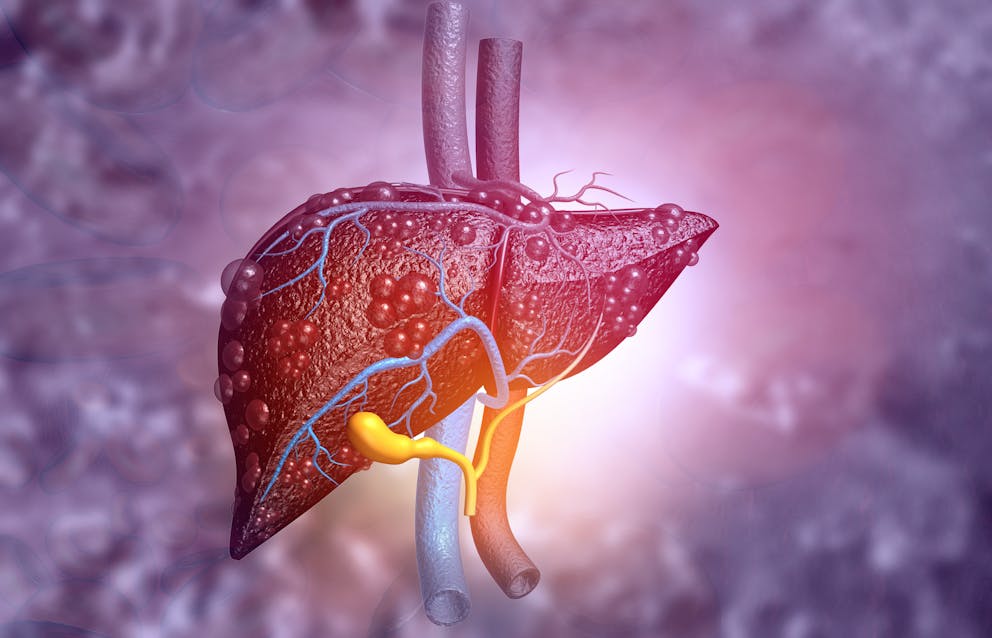The FIRST Sign of a Vitamin A Deficiency Is...
The FIRST Sign of a Vitamin A Deficiency Is...
Have you been having trouble seeing at night? Perhaps you're noticing your skin has been drier than usual, or you seem to be getting sick more often.
While these could indicate various health issues, these could be potential signs of vitamin A deficiency.
Vitamin A is an essential nutrient crucial for many bodily functions, from maintaining healthy vision to supporting the immune system.
However, many people don't even realize they are lacking this vital nutrient. This blog post will explore vitamin A deficiency symptoms, potential causes, and what you can do to address them.
Understanding Vitamin A and Its Importance
Vitamin A isn’t just one thing. It's a group of fat-soluble compounds, including retinol, retinal, and retinyl esters. Each form plays a vital role in maintaining good health.
One of the best-known benefits of vitamin A, specifically retinol, is maintaining healthy vision.
Retinol is crucial for producing rhodopsin, a protein in the retina of your eyes that allows you to see in low-light conditions.
Vitamin A is also crucial in supporting cell growth and development, a robust immune response, and healthy skin.
Vitamin A Deficiency Symptoms
Recognizing symptoms of vitamin A deficiency early can be vital in preventing potential health complications. Some common signs include:
1. Vision Problems
Vitamin A plays a vital role in vision. One of the earliest and most common signs of deficiency is night blindness (nyctalopia), which causes difficulty seeing in low-light conditions.
If your deficiency worsens, it can lead to more severe eye problems, including xerophthalmia, a condition that affects the conjunctiva and cornea, and can eventually lead to vision loss if left untreated.

2. Dry Eyes
If you find yourself frequently reaching for eye drops to combat dryness, low vitamin A levels may be a contributing factor. Vitamin A is essential for maintaining the moisture of various membranes in the body, including those in the eyes.
If left unaddressed, Deficiency can lead to dryness, irritation, and even more serious conditions like corneal ulcers.
These eye problems can significantly impact quality of life, making it difficult to perform everyday tasks such as reading or using a computer.
3. Skin Issues
Have you been battling dry, rough, or bumpy skin despite consistent moisturizing? This could be a sign of vitamin A deficiency. Vitamin A is crucial in the growth and repair of skin cells.
Without adequate levels, your skin's health may decline, leading to issues like dryness, flakiness, and an increased risk of infections. In more severe cases, it can even delay the healing of wounds and open sores.
4. Weak Immune System
If you find yourself getting sick frequently, it might be a sign of a weakened immune system. Vitamin A strengthens the immune system and helps the body combat infections.
When levels are insufficient, your immune response can weaken, leaving you more vulnerable to respiratory tract infections and tract infections.
Children worldwide with vitamin A deficiency are particularly susceptible to severe complications from infections like measles.
Causes of Vitamin A Deficiency
While several factors can contribute to vitamin A deficiency, some common causes include:
1. Inadequate Dietary Intake
This is often a factor in developing countries where access to various nutrient-rich foods is limited. However, even in developed nations, picky eaters or individuals following restrictive diets may be at risk.
Focus on incorporating foods naturally rich in vitamin A or its precursor, beta-carotene, such as liver, cod liver oil, eggs, dairy, carrots, and spinach.
These vitamin A-rich foods are essential for maintaining adequate levels of this crucial nutrient.
2. Issues with Absorption
Even with a diet rich in vitamin A, certain conditions can hinder your body's ability to absorb this crucial nutrient.
These include digestive disorders, such as Crohn's disease and celiac disease, that compromise the gut's ability to absorb nutrients efficiently.
Addressing these underlying conditions to improve nutrient absorption and overall health is vital. Consulting a healthcare professional and registered dietitian to address specific dietary needs and potential supplementation is essential.
Strategies such as dietary modifications, digestive enzyme supplements, and, in some cases, vitamin A injections or high-dose oral supplements can be used.
3. Polymorphisms
In some instances, individuals may experience vitamin A deficiency due to genetic factors impacting how their bodies process this crucial nutrient.
A prime example lies in a gene variation, a polymorphism, involved in converting beta-carotene—the precursor to vitamin A—into its active form, retinol.
Individuals with this gene variant might need to consume higher amounts of preformed vitamin A from animal sources or consider supplementing to ensure sufficient levels for optimal health.
This is just one example of how genetics can play a role in vitamin A deficiency.

4. Liver Disease
The liver stores large amounts of vitamin A in the body. Consequently, liver diseases such as cirrhosis or hepatitis, which compromise liver function, can affect the organ's ability to store and utilize vitamin A efficiently.
This can lead to a deficiency, even if your dietary intake is adequate. Therefore, monitoring and managing liver health is crucial in preventing and addressing vitamin A deficiency.
5. Medications
Believe it or not, specific medications can interfere with your body's absorption or metabolism of certain nutrients, and vitamin A is no exception.
Statins, a class of drugs prescribed to lower cholesterol levels, for example, have been linked to potential interactions with vitamin A levels.
If you're on long-term medication, always discuss potential nutrient interactions with your doctor or a registered dietitian.
They can provide personalized advice on managing your vitamin A intake while ensuring you receive the full benefits of your prescribed treatment.
Addressing Vitamin A Deficiency
Addressing vitamin A deficiency typically involves a multifaceted approach, including:
Dietary Changes
In cases of mild deficiency, increasing vitamin A-rich foods may be sufficient to restore adequate levels. Incorporate these powerhouse sources into your diet:
Liver: Beef liver is exceptionally high in vitamin A. Chicken and lamb liver are also good sources. Try including them in your diet occasionally.
Cod Liver Oil: This oil boasts abundant amounts of vitamins A and D and heart-healthy omega-3 fatty acids. A daily teaspoon can provide a significant portion of your daily vitamin A requirement.
Eggs: Don't ditch the yolk—it's rich in vitamin A. Aim to include eggs as part of a healthy breakfast for a nutritional boost.
Dairy: Milk, cheese, and yogurt are excellent sources of Vitamin A.
Fruits and Vegetables: Carrots, spinach, kale, cantaloupe, and apricots are abundant in beta-carotene.
Supplementation
If dietary changes are not enough to correct the deficiency or malabsorption issues, healthcare providers may recommend supplementation with a high-quality vitamin A supplement.
It is important to discuss with a healthcare professional to determine the appropriate dosage.
While vitamin A deficiency can lead to health complications, it's equally important to remember that excessive intake, especially from supplements, can cause toxicity.
Therefore, it's best to consult with a healthcare professional to determine the appropriate dosage for your individual needs.
Vitamin A and Your Overall Well-Being
As you've read, Vitamin A is much more than just a nutrient for healthy vision. Vitamin A deficiency can manifest in various ways, impacting overall health and well-being.
By paying attention to the potential warning signs and seeking timely medical advice when needed, you can help protect your body from the negative effects of vitamin A deficiency and maintain a happy, healthy life.
Conclusion
Understanding and addressing potential vitamin A deficiency is crucial for individuals of all ages, from supporting immune function to maintaining healthy skin.
A well-proper diet rich in vitamin A-rich foods is often sufficient to maintain adequate levels and reap the benefits.
By being mindful of this crucial nutrient, you are taking a proactive step toward safeguarding your health and enjoying a vibrant life.
FAQs about Vitamin A Deficiency
What happens if your vitamin A is low?
When vitamin A levels are low, you may experience various symptoms such as night blindness, dry eyes, dry skin, increased infections, and, in severe cases, even impaired growth and development, especially in children.
These symptoms can also be indicative of other health conditions, so it's crucial to consult with a healthcare professional for proper diagnosis and treatment.
What is the earliest symptom of vitamin A deficiency?
The earliest and most common symptom is night blindness. It makes it difficult to see in low-light conditions. This is because vitamin A is essential for producing rhodopsin, a light-sensitive protein in the eyes that is necessary for night vision.
How do I know if I'm deficient in vitamin A?
If you suspect a vitamin A deficiency, see a healthcare provider for a proper diagnosis. They can order a blood test to measure vitamin A levels in your blood and determine if your levels are below the normal range.
Which food is rich in vitamin A?
Many foods are rich in vitamin A. These foods include beef liver, cod liver oil, eggs, dairy products, carrots, spinach, kale, and cantaloupe.
These foods provide either preformed vitamin A (found in animal products) or provitamin A carotenoids (found in plant sources), which your body can convert into vitamin A.
Supporting Data
https://faseb.onlinelibrary.wiley.com/doi/epdf/10.1096/fj.08-121962
https://www.aoa.org/news/clinical-eye-care/health-and-wellness/vitamin-a-good-for-the-eyes?sso=y
Next blog
The #1 Best Remedy for BloatingTags

Popular
08/21/2024
51.9K views
02/23/2025
44.4K views
11/18/2024
263K views
03/18/2024
11/21/2022




